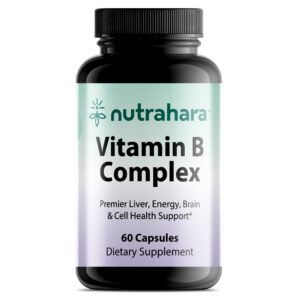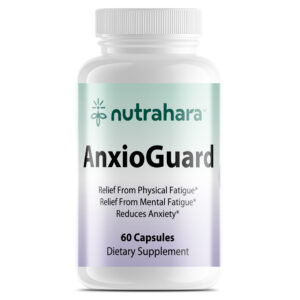
Nutrahara Blog
Nutrahara Blog
Menopause Nutrition Essentials for Women’s Health
Section I. Introduction
Menopause marks a significant transition in a woman’s life, yet it often remains shrouded in misconceptions and overlooked nuances. Beyond the cessation of menstruation, menopause encompasses a spectrum of physical and emotional changes that require tailored care and attention. Understanding the multifaceted nature of this phase is crucial for women of all ages, as it sets the foundation for informed decision-making and proactive health management.
1. Overview of Menopause: Definition and Phases
Menopause is commonly defined as the cessation of menstrual periods for twelve consecutive months, signaling the end of reproductive years. However, this biological milestone unfolds across distinct phases, each characterized by unique hormonal fluctuations and symptoms. From perimenopause, marked by irregular periods and fluctuating hormone levels, to post-menopause, where symptoms may persist but fertility ends, navigating these stages requires a nuanced approach.
2. Importance of Nutrition during Menopause
While menopause brings about physiological changes, the role of nutrition in mitigating symptoms and supporting overall well-being is often overlooked. Dietary choices can profoundly impact hormonal balance, bone health, and mental clarity during this transitional period. By embracing a holistic approach to nutrition, women can empower themselves to navigate menopause with vitality and resilience.
Section II. Menopause Nutrition Essentials
As women transition through menopause, maintaining optimal nutrition becomes paramount for managing symptoms and supporting overall health. While there’s no one-size-fits-all approach to menopause nutrition, incorporating certain key nutrients and dietary habits can make a significant difference in how women experience this life stage.
Key Nutrients for Menopause Health
During menopause, the body’s nutritional needs may change due to hormonal fluctuations and age-related factors. Ensuring adequate intake of the following nutrients can help address specific menopausal symptoms and promote long-term well-being:
Calcium and Vitamin D:
– Calcium and vitamin D are essential for maintaining bone health, especially as women’s estrogen levels decline during menopause. Adequate calcium intake helps prevent bone loss and reduce the risk of osteoporosis, while vitamin D aids in calcium absorption.
Recommended Reading: Menopause and Good Nutrition
Omega-3 Fatty Acids:
– Omega-3 fatty acids possess anti-inflammatory properties and may help alleviate symptoms such as joint pain and mood swings commonly associated with menopause. Sources of omega-3s include fatty fish (e.g., salmon, mackerel), flaxseeds, chia seeds, and walnuts.
Phytoestrogens:
– Phytoestrogens are plant compounds that mimic the effects of estrogen in the body. They can help alleviate menopausal symptoms by exerting weak estrogenic activity. Foods rich in phytoestrogens include soy products, flaxseeds, lentils, and chickpeas.
Importance of Fiber
Incorporating fiber-rich foods into the diet is crucial for women during menopause for several reasons:
Dietary Sources of Fiber:
– Whole grains, fruits, vegetables, legumes, nuts, and seeds are excellent sources of dietary fiber. Consuming a variety of these foods ensures adequate fiber intake, which is essential for digestive health and maintaining healthy cholesterol levels.
Benefits for Digestive Health:
– Fiber promotes regular bowel movements and helps prevent constipation, a common issue that may worsen during menopause. Additionally, soluble fiber can help stabilize blood sugar levels and reduce the risk of cardiovascular disease.
By prioritizing these key nutrients and incorporating fiber-rich foods into their diet, women can proactively manage menopausal symptoms and support their overall health and well-being. In the following sections, we’ll delve deeper into specific dietary strategies and supplements tailored to address the unique needs of women during menopause.
Section III. Menopause Vitamin Supplements
While obtaining essential nutrients from whole foods is ideal, some women may benefit from supplementation, especially during menopause when nutrient needs may increase or absorption may be compromised. Understanding common vitamin deficiencies and choosing the menopause vitamin supplements can help women manage menopausal symptoms and support overall health.
Understanding Vitamin Deficiencies in Menopause
Several factors, including hormonal changes, aging, and dietary habits, can contribute to vitamin deficiencies in menopausal women. Common deficiencies during this stage include:
Vitamin D:
– Reduced sun exposure and decreased skin synthesis of vitamin D, coupled with age-related changes in metabolism, can lead to vitamin D deficiency. This nutrient is crucial for bone health, immune function, and mood regulation.
Vitamin B12:
– Declining stomach acid production with age can impair the absorption of vitamin B12 from food sources. Since vitamin B12 is essential for nerve function and energy metabolism, deficiency can manifest as fatigue, weakness, and neurological symptoms.
Recommended Menopause Vitamin Supplements
In addition to a balanced diet, certain menopause vitamin supplements can help address specific needs and support overall well-being during menopause:
Vitamin B Complex:
– B vitamins play a crucial role in energy production, stress management, and neurotransmitter synthesis. A comprehensive B complex supplement can help alleviate fatigue, support mood stability, and promote healthy metabolism.
Vitamin E:
– Vitamin E possesses antioxidant properties and may help alleviate symptoms such as hot flashes and vaginal dryness associated with menopause. It also supports cardiovascular health and immune function.
Calcium and Vitamin D:
– For women at risk of osteoporosis or those with inadequate dietary intake of calcium and vitamin D, supplementation may be necessary to maintain bone density and reduce fracture risk.
Omega-3 Fatty Acids:
– While omega-3 fatty acids are primarily obtained from dietary sources, supplementation with fish oil or algae-derived DHA and EPA can be beneficial for women experiencing joint pain, mood disturbances, or cardiovascular issues during menopause.
Recommended Reading: 11 Supplements for Menopause
By addressing potential vitamin deficiencies through supplementation, women can complement their dietary intake and optimize their nutrient status to better manage menopausal symptoms and support overall health and vitality. However, it’s essential to consult with a healthcare provider before starting any new supplement regimen to ensure safety and efficacy.
Section IV. Crafting a Menopause Eating Plan
Developing a well-rounded menopause eating plan tailored to the unique needs of menopausal women is essential for managing symptoms, promoting overall health, and supporting longevity. By focusing on nutrient-dense foods and adopting healthy eating habits, women can navigate the menopausal transition with greater ease and vitality.
Building a Balanced Plate
Creating a balanced menopause eating plan involves incorporating a variety of nutrient-rich foods from different food groups:
Emphasizing Whole Foods:
– Prioritize whole, minimally processed foods such as fruits, vegetables, whole grains, lean proteins, and healthy fats. These foods are rich in vitamins, minerals, fiber, and phytonutrients, providing essential nutrients to support overall health and well-being.
Portion Control:
– Pay attention to portion sizes to prevent overeating and promote weight management. Use visual cues or measuring tools to gauge appropriate portion sizes for different food groups, and practice mindful eating to tune into hunger and fullness cues.
Meal Timing Tips
In addition to food choices, the timing of meals and snacks can also impact energy levels, mood, and digestion:
Importance of Regular Meals:
– Aim for consistent meal times to maintain stable blood sugar levels and prevent energy crashes throughout the day. Eating regular, balanced meals can help regulate hunger and satiety hormones, promoting better appetite control and overall energy balance.
Strategies for Controlling Cravings:
– Incorporate protein-rich snacks and meals to help curb cravings and stabilize blood sugar levels. Including fiber-rich foods and healthy fats in meals can also promote feelings of fullness and satisfaction, reducing the likelihood of overeating or reaching for unhealthy snacks.
Crafting a menopause eating plan involves finding a balance between nutrient density, portion control, and meal timing to support optimal health and well-being during this life stage. By focusing on whole, nutrient-rich foods and adopting mindful eating habits, women can nourish their bodies, manage menopausal symptoms, and thrive throughout the transition and beyond.
Section V. Managing Menopause Symptoms Through Diet and Lifestyle
Menopause brings about a myriad of physical and emotional changes, but adopting specific dietary and lifestyle strategies can help women effectively manage common symptoms and improve their overall quality of life during this transitional period.
Addressing Menopause Sweating
Hot flashes and night sweats are hallmark symptoms of menopause, but certain dietary and lifestyle modifications can help alleviate their frequency and severity:
Hydration Strategies:
– Staying well-hydrated is essential for regulating body temperature and minimizing the intensity of hot flashes and menopause sweating. Encourage women to drink plenty of water throughout the day and limit caffeine and alcohol intake, as these can exacerbate dehydration and trigger hot flashes.
Cooling Foods and Beverages:
– Incorporating cooling foods and beverages such as cucumbers, watermelon, mint, and herbal teas can help lower body temperature and provide relief from hot flashes and menopause sweating. Including these foods in meals and snacks can help women manage their symptoms more effectively.
Alleviating Menopause Pain
Joint pain and muscle stiffness are common complaints among menopausal women, but dietary and lifestyle interventions can help alleviate discomfort associated with menopause pain:
Anti-inflammatory Foods:
– Emphasize a diet rich in anti-inflammatory foods such as fruits, vegetables, fatty fish, nuts, seeds, and olive oil. These foods contain nutrients and compounds that help reduce inflammation in the body, potentially easing joint pain and stiffness.
Incorporating Turmeric and Ginger:
– Turmeric and ginger are potent anti-inflammatory spices that can be added to meals, teas, or smoothies to provide natural pain relief and support joint health. Encourage women to experiment with incorporating these spices into their daily diet to experience their benefits.
By implementing these dietary and lifestyle strategies, women can effectively manage menopausal symptoms such as hot flashes, night sweats, joint pain, and muscle stiffness. Encouraging a holistic approach that focuses on nourishing the body with nutrient-rich foods, staying hydrated, and incorporating gentle movement and relaxation techniques can empower women to navigate the menopausal transition with greater ease and comfort.
Section VI. Exercise During Menopause
Regular physical activity is crucial for women during menopause to support overall health, manage weight, preserve bone density, and alleviate menopausal symptoms. Incorporating a variety of exercises into one’s routine can help women maintain strength, flexibility, and cardiovascular fitness throughout the menopausal transition.
Importance of Physical Activity
Understanding the benefits of exercise during menopause can motivate women to prioritize regular physical activity in their daily lives:
Benefits for Bone Health:
– Weight-bearing exercises such as walking, jogging, dancing, and strength training help stimulate bone remodeling and maintain bone density, reducing the risk of osteoporosis and fractures.
Mood-Boosting Effects:
– Exercise promotes the release of endorphins, neurotransmitters that help improve mood and reduce stress and anxiety. Engaging in physical activity can enhance mental well-being and combat mood swings commonly experienced during menopause.
Types of Exercises for Menopause
Encouraging women to explore different types of exercises can help them find activities that they enjoy and that align with their fitness goals:
Strength Training:
– Incorporating resistance training exercises using weights, resistance bands, or bodyweight can help women build and maintain muscle mass, improve bone density, and boost metabolism. Aim for a mix of upper and lower body exercises targeting major muscle groups.
Cardiovascular Exercises:
– Cardiovascular activities such as walking, cycling, swimming, and aerobics help improve heart health, increase endurance, and promote calorie expenditure. Encourage women to engage in moderate-intensity cardio exercises for at least 150 minutes per week or vigorous-intensity cardio for 75 minutes per week.
By emphasizing the importance of regular physical activity and providing guidance on various types of exercises, women can incorporate fitness into their daily routine and experience the numerous health benefits associated with staying active during menopause. Encourage women to listen to their bodies, start slowly, and gradually increase the intensity and duration of their workouts as they build strength and endurance.
Section VII. Nurturing Mental Health Through Menopause
Menopause can bring about significant changes in mood and emotional well-being due to hormonal fluctuations and life transitions. However, prioritizing mental health through various strategies can help women navigate this period with resilience, positivity, and emotional balance.
Understanding Menopause-Related Mental Health Challenges
Educating women about common mental health challenges during menopause can empower them to recognize and address their emotional needs:
Mood Swings and Irritability:
– Fluctuations in estrogen and progesterone levels can contribute to mood swings, irritability, and emotional volatility during menopause. Understanding that these changes are normal can help women cope more effectively with shifting emotions.
Anxiety and Depression:
– Menopause may increase the risk of anxiety and depression, particularly for women with a history of mood disorders or significant life stressors. Encouraging women to seek support and professional help if they experience persistent feelings of sadness, anxiety, or hopelessness is essential.
Strategies for Emotional Well-being
Empowering women with practical strategies to nurture their mental health can improve their resilience and coping skills during menopause:
Mindfulness and Meditation:
– Mindfulness practices, such as meditation, deep breathing exercises, and yoga, can help women reduce stress, enhance self-awareness, and cultivate a sense of inner peace and acceptance. Encourage women to incorporate mindfulness into their daily routine to promote emotional well-being.
Seeking Support from Friends and Professionals:
– Encourage women to connect with supportive friends, family members, or support groups who can provide empathy, understanding, and validation during challenging times. Additionally, seeking guidance from mental health professionals, such as therapists or counselors, can offer valuable coping strategies and emotional support.
By acknowledging and addressing the mental health aspects of menopause, women can embrace this life transition with greater resilience, self-awareness, and emotional well-being. Encourage women to prioritize self-care, seek support when needed, and cultivate a positive mindset to navigate the ups and downs of menopause with grace and strength.
Section VIII. Testimonials from Real Women
Real-life testimonials from women who have navigated menopause can provide valuable insights, inspiration, and encouragement for others going through similar experiences. These testimonials offer personal perspectives on managing symptoms, implementing lifestyle changes, and finding strategies for thriving during menopause.
Success Stories of Women Managing Menopause Symptoms
Sarah’s Story: Finding Relief Through Nutrition and Exercise
– After struggling with severe hot flashes and mood swings during menopause, Sarah decided to prioritize her health by adopting a nutrient-rich diet and incorporating regular exercise into her routine. With the guidance of a nutritionist, Sarah discovered the power of incorporating more fruits, vegetables, and omega-3 fatty acids into her meals, which helped alleviate her symptoms and improve her overall well-being. By committing to daily walks and strength training sessions, Sarah found relief from hot flashes and experienced a significant boost in energy and mood.
Emily’s Journey: Overcoming Anxiety Through Mindfulness
– Emily’s menopausal transition was accompanied by intense feelings of anxiety and overwhelm, making it challenging for her to cope with daily stressors. Seeking support from a therapist, Emily learned mindfulness and meditation techniques to manage her anxiety and cultivate a sense of calm and balance. Through consistent practice, Emily discovered that mindfulness not only helped her navigate the ups and downs of menopause with greater ease but also enhanced her overall quality of life.
Personal Experiences with Improved Nutrition and Lifestyle Changes
Maria’s Transformation: Embracing Self-Care and Self-Compassion
– Maria struggled with self-esteem issues and body image concerns during menopause, feeling overwhelmed by changes in her appearance and mood. Through self-reflection and self-compassion, Maria embarked on a journey of self-discovery and self-care, prioritizing activities that nourished her body, mind, and spirit. By focusing on holistic wellness, including nutritious eating, regular exercise, and stress-relief practices such as journaling and spending time in nature, Maria found newfound confidence, resilience, and inner peace.
Jessica’s Testimony: Finding Community and Connection
– Jessica felt isolated and alone in her menopausal journey until she discovered a supportive online community of women sharing their experiences and supporting each other through the ups and downs of menopause. Through this virtual sisterhood, Jessica found validation, empathy, and practical tips for managing symptoms and improving her quality of life. By connecting with others who understood her struggles, Jessica felt empowered and uplifted, knowing she wasn’t alone in her menopausal experience.
These real-life testimonials highlight the diverse experiences and strategies women employ to navigate menopause with grace, resilience, and vitality. By sharing their stories, these women inspire others to embrace self-care, seek support, and discover their unique path to wellness during this transformative life stage.
Section IX. Conclusion
Navigating menopause is a significant and transformative journey in a woman’s life, marked by physical, emotional, and psychological changes. While the menopausal transition can present its challenges, it also offers opportunities for growth, self-discovery, and renewed vitality. By prioritizing nutrition, exercise, mental health, and self-care, women can embrace this life stage with resilience, grace, and empowerment.
In this comprehensive guide, we’ve explored the multifaceted aspects of menopause and provided practical strategies for managing symptoms and promoting overall well-being. From optimizing nutrition and incorporating supplements to embracing physical activity and nurturing mental health, each section offers valuable insights and actionable tips for women navigating the menopausal journey.
By adopting a holistic approach to menopause that addresses the unique needs of mind, body, and spirit, women can cultivate a sense of balance, vitality, and fulfillment during this transformative period. Real-life testimonials from women who have journeyed through menopause serve as a source of inspiration and encouragement, reminding us that we’re not alone in our experiences and that there’s strength in community and connection.
As women embrace self-care, prioritize self-compassion, and seek support from loved ones and healthcare professionals, they can navigate menopause with confidence, resilience, and optimism. By empowering women with knowledge, resources, and encouragement, we can foster a culture of wellness and empowerment that celebrates the beauty and wisdom of every stage of a woman’s life.
In closing, let us embrace menopause not as an ending but as a new beginning—a journey of self-discovery, growth, and transformation. Together, let us navigate this transition with grace, courage, and the knowledge that we are capable of embracing our fullest potential at every stage of life.
Written by the Nutrahara Team
This article was prepared by the expert team at Nutrahara, which includes experienced nutrition scientists and naturopaths dedicated to advancing women’s health through natural wellness solutions. We combine scientific research with holistic practices to help you live your healthiest life.
Connect with us on LinkedIn to stay updated on the latest in women’s health and wellness.








